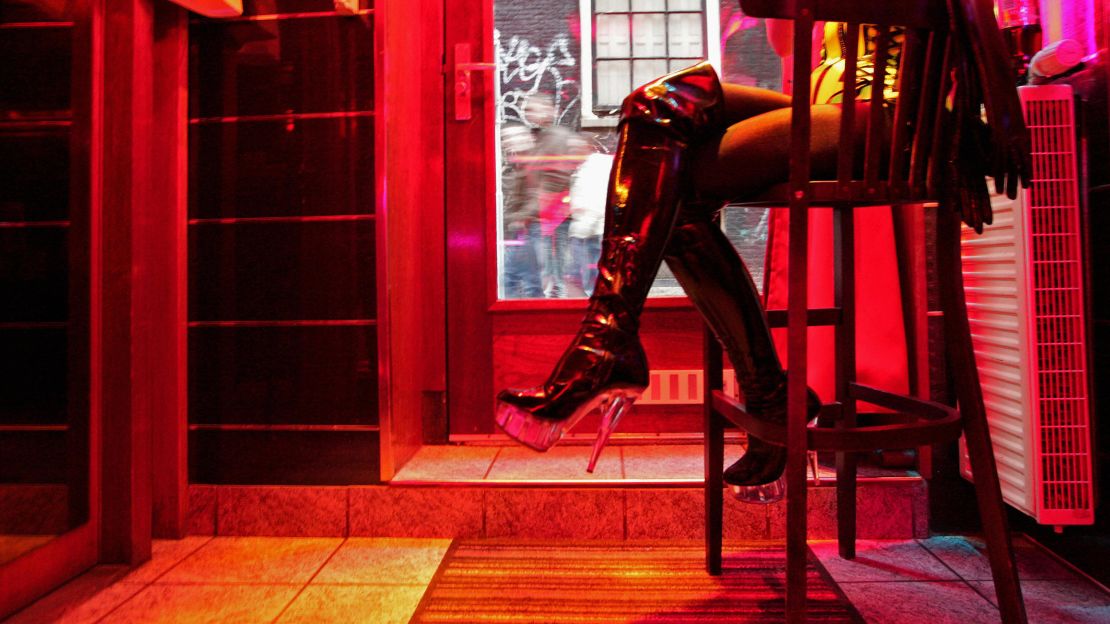Amsterdam’s red light district is set for a major overhaul, with plans afoot that could draw curtains over the Dutch capital’s notorious window brothels.
Femke Halsema, Amsterdam’s first female mayor, has presented four options aimed at protecting sex workers from degrading conditions, tackling crime, and reducing the impact of tourism in Amsterdam’s De Wallen red-light district.
De Wallen district is popular among tourists for its sex shops, cafes and 330 window brothels.
Sex work has been legal in some form in the Netherlands since 1830, and was recognized as a legal profession in 1988. But the increasing footfall of visitors and the rise of camera phones and social media has turned the historic neighborhood into a spectacle that, the mayor says, can be humiliating to the women involved.

“For many visitors, the sex workers have become no more than an attraction to look at. In some cases this is accompanied by disruptive behavior and a disrespectful attitude to the sex workers in the windows,” the mayor’s office said in a statement on Wednesday.
Four scenarios have been proposed for discussion including closing the curtains on the windows so sex workers can’t be seen from the street, fewer window-style rooms, moving the brothels to new locations elsewhere in Amsterdam and the possibility of a sex worker “hotel” being created.
The plans aim to protect sex workers from gawking tourists and their camera phones, and also to combat a rise in abuses such as human trafficking.
The four proposals will be discussed with sex workers, residents and businesses in July, before being taken to the city council in September. The plans will ultimately be developed into a new policy on sex work, the mayor’s office confirmed.
In March, the city government announced that it would end sightseeing tours of the red-light district, citing concerns about prostitutes being treated as a tourist attraction.
“We do not consider it appropriate for tourists to leer at sex workers,” city alderman Udo Kock, who proposed the bill, said at the time.
The city has also sought to address the issue of of “overtourism” with visitor numbers forecast to rise from 18 million in 2018 to 42 million by 2030.
In its Perspective 2030 report, the Netherlands tourist board said it was now engaged in “destination management” rather than “destination promotion”, with efforts being made to switch tourists’ attention to other cities in the country.
CNN’s Meera Senthilingam, Lilit Marcus, Sarah Dean, Joe Minihane and Martijn Edelman contributed to this report.



















